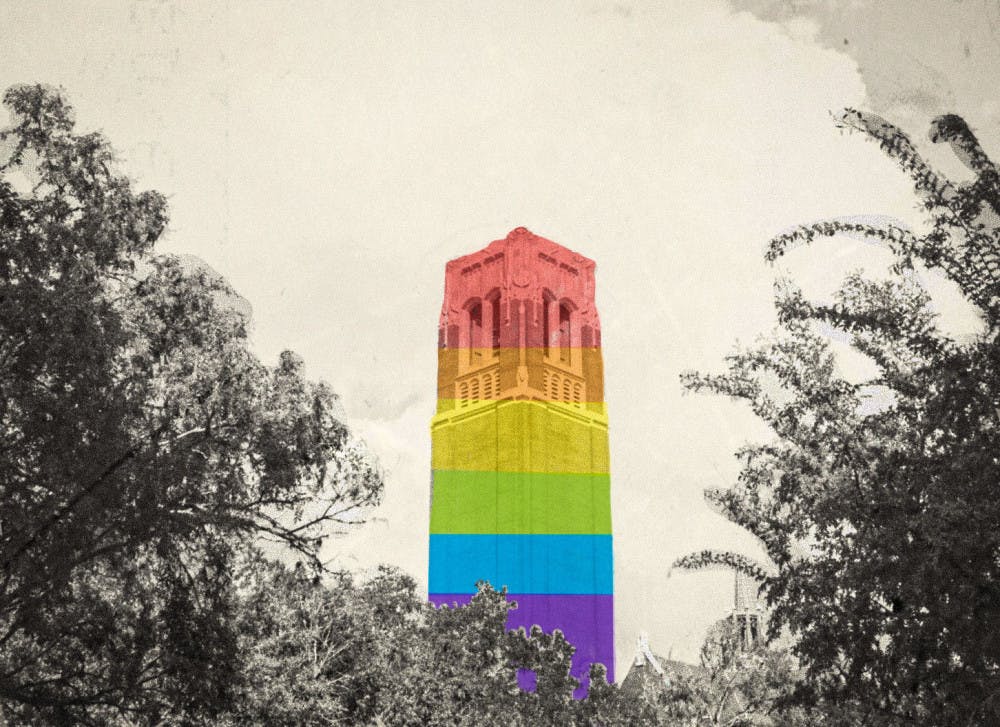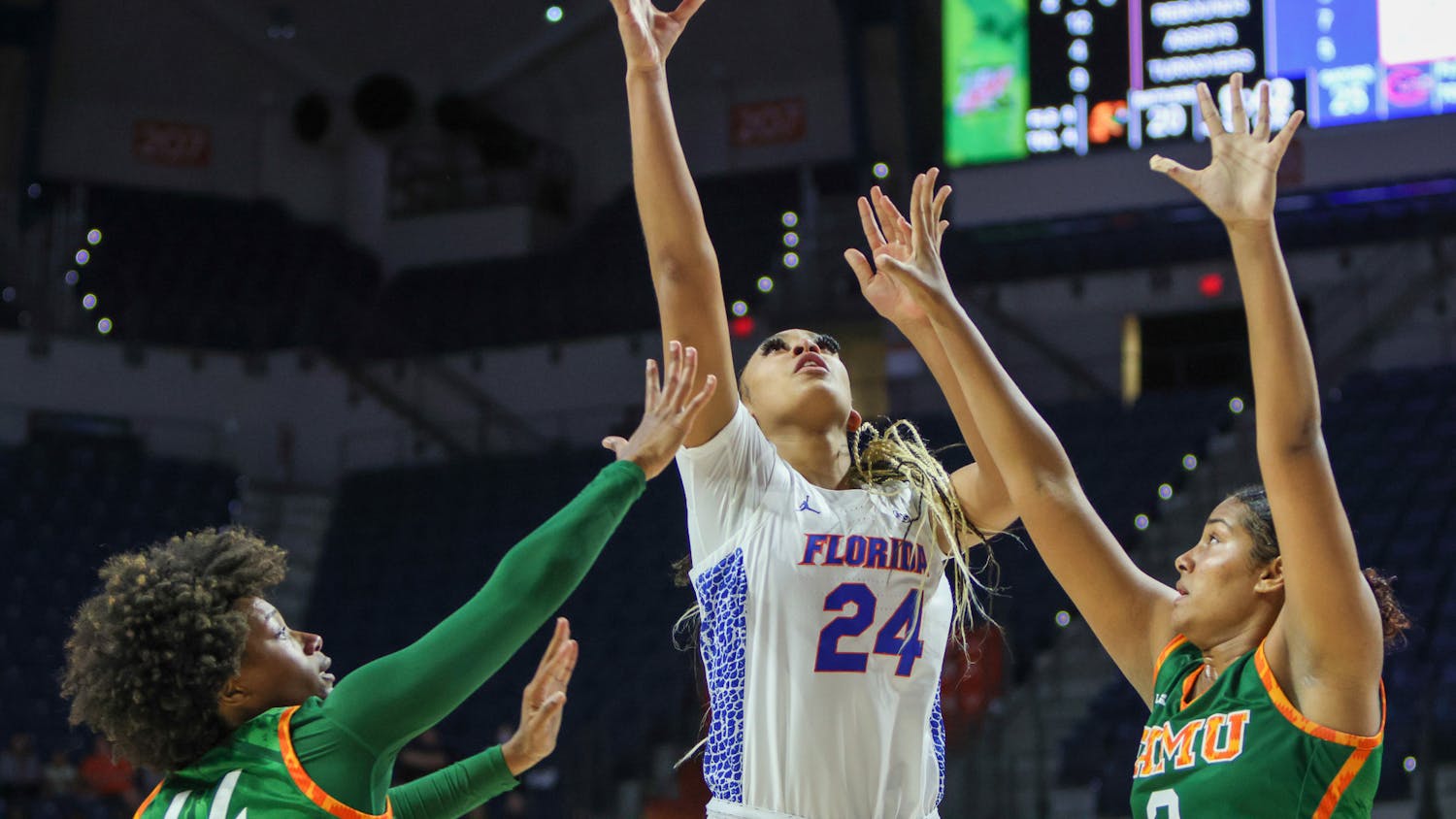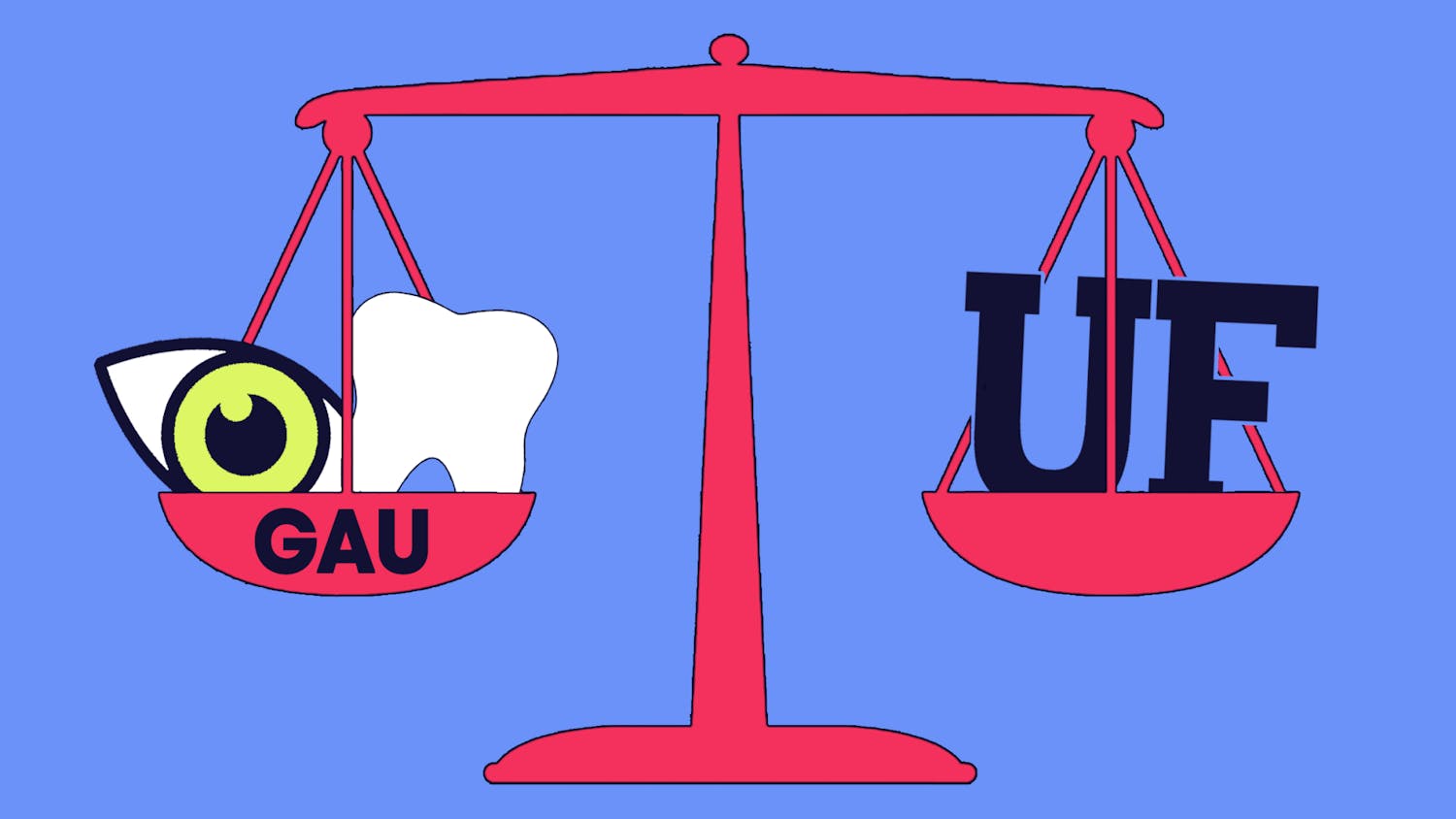
While tabling at his first Pride event as a UF LGBTQ+ Affairs ambassador, an elderly woman approached Georges Obayi with tears in her eyes.
She wrapped her arms around him tightly. She was sorry for not fighting enough to help his generation, she said. She told him she tried to establish a rainbow reading group, an LGBTQ+ book club, when she was younger, but she ultimately had to cancel the club after receiving backlash and hate, he said.
“She’s coming to me to apologize for not doing enough to fight for the future that I’m now living,” said Obayi, a 22-year-old UF industrial and systems engineering senior. “That’s the pain that I really want us to rectify.”
UF’s PSU, LGBTQ+ Affairs and an LGBTQ+ faculty and staff group called Queer Nation published the “LGBTQ+ Experience Survey” on June 17. By gathering quantitative data about the community through the questionnaire, the groups hope to begin addressing problems faced by LGBTQ+ people on campus.
The groups came together because they were looking to engage within their own respective communities while learning about the UF LGBTQ+ community’s current state, said Cecilia Luna, UF’s Queer Nation co-president and communications specialist at the UF Student Health Care Center.
The survey allows participants to share their experiences anonymously, she added.
It asks for demographic information such as age, sexual orientation and whether the participant is a student, faculty member or alumnus.
All LGBTQ+ UF students, faculty and alumni are encouraged to take the survey, Luna said. The organizations haven’t decided when they will close the survey or start to analyze the results, she said.
Data about the UF LGBTQ+ community hasn’t been collected in a long time, Luna said. Faculty were last surveyed in a comprehensive climate survey in 2015, but it did not contain questions specific to the LGBTQ+ experience. The most recent survey that did was conducted in the early 2000s, she said.
The new survey will help its creators plan events in the future and assess what issues are important to the UF LGBTQ+ community. It was published using Qualtrics, a free survey software, and has been marketed through email, Instagram, Facebook and other social media platforms.
Queer Nation created the survey's questions geared toward faculty and staff, and PSU and LGBTQ+ Affairs focused on students and alumni, Luna said. After a participant checks “student,” “faculty” or “alumni” on the demographic page of the survey, they will only see questions geared towards that group.
Obayi said he’s excited for the potential of the survey results to foster a more inclusive university experience, but he acknowledged that it has its limits. It will not be able to reach the entirety of the UF LGBTQ+ community, for instance.
“We’re a small group of people putting together this survey, and we don’t claim that this survey will be able to look into every aspect of the experience,” he said.
Some LGBTQ+ faculty emailed Queer Nation leaders and criticized the organizations’ decision to survey the community. They deemed it “aggressive,” he said, and said it was inappropriate to question the university. They did it anyway.
“We’re not going to wait any longer,” Obayi said.
Too many times, Obayi said he’s seen university administration shrug at the hardship faced by LGBTQ+ faculty and students.
“We need the system to change,” he said.
Obayi denied disclosing who criticized the survey because he did not have permission from Queer Nation leaders. Luna confirmed that the organization has received complaints, but declined to comment further.
Julianne Atchinson, a 20-year-old UF applied physiology and kinesiology junior, said she filled out the survey because she wants to see more LGBTQ+ representation at UF.
Atchinson said she hasn’t met many other members of the LGBTQ+ community. Marginalized groups and LGBTQ+ people can benefit from having a community because it gives them people to relate to, she said.
UF should focus on bringing awareness to LGBTQ+ history and increasing diversity on campus, she said. Although she has not felt discriminated against at UF, Atchinson said, she still feels like people aren’t actively advocating for the university’s LGBTQ+ population.
“I think there is a middle ground where no one is extremely hateful or discriminatory,” Atchinson said. “But, there also is not that much of a voice and awareness.”





